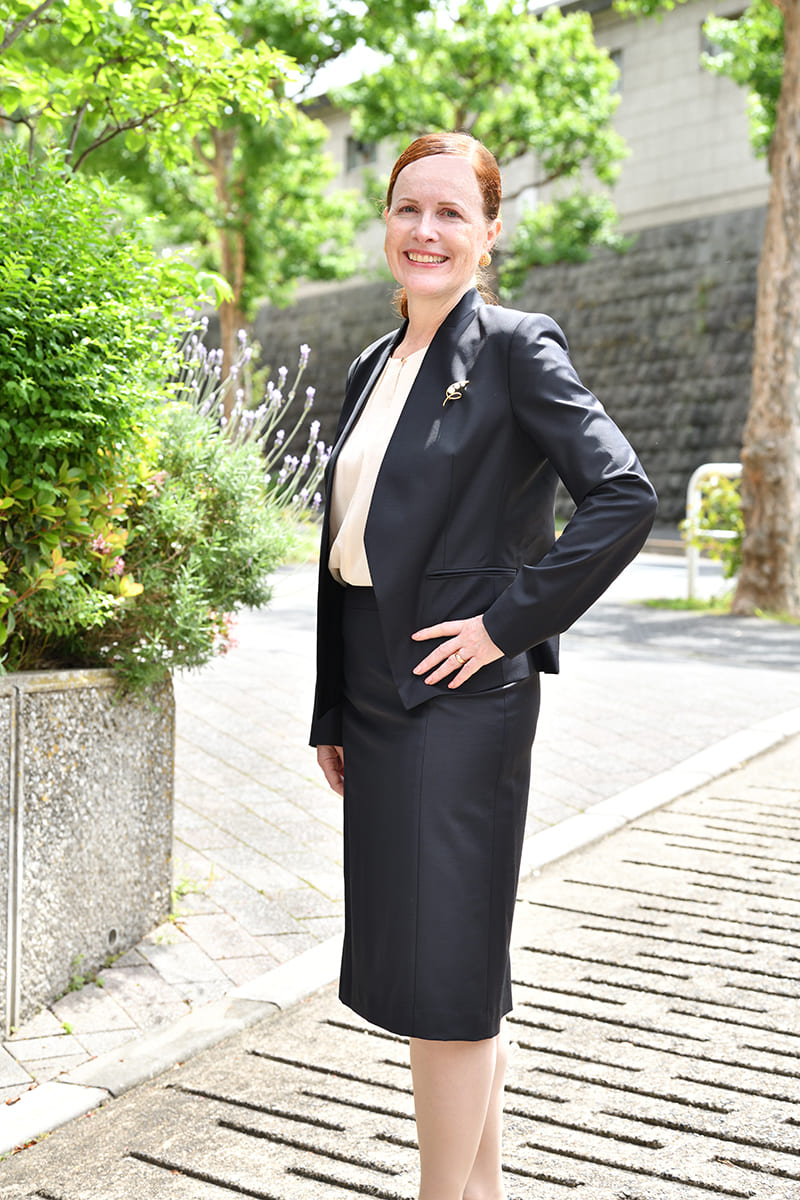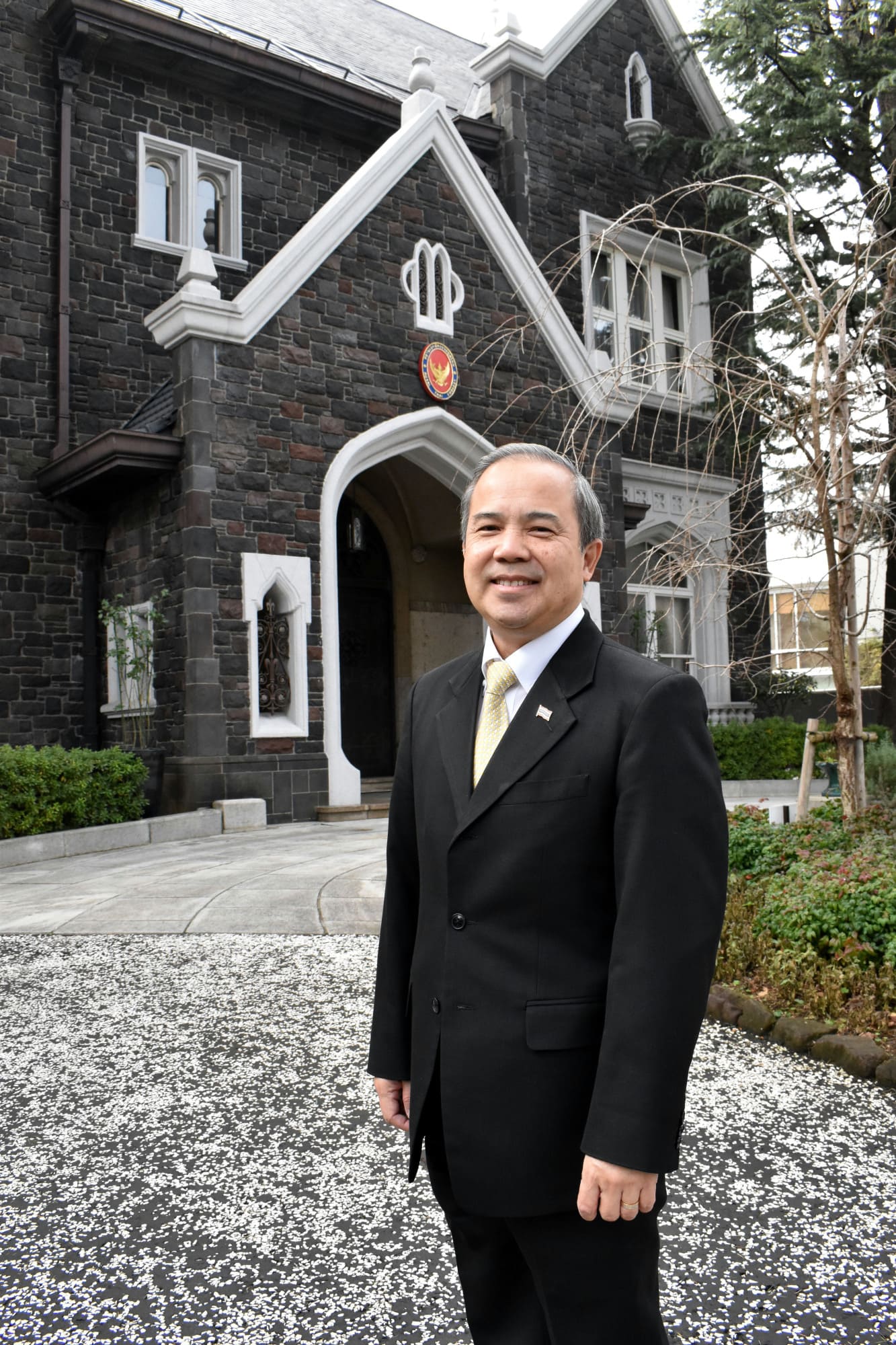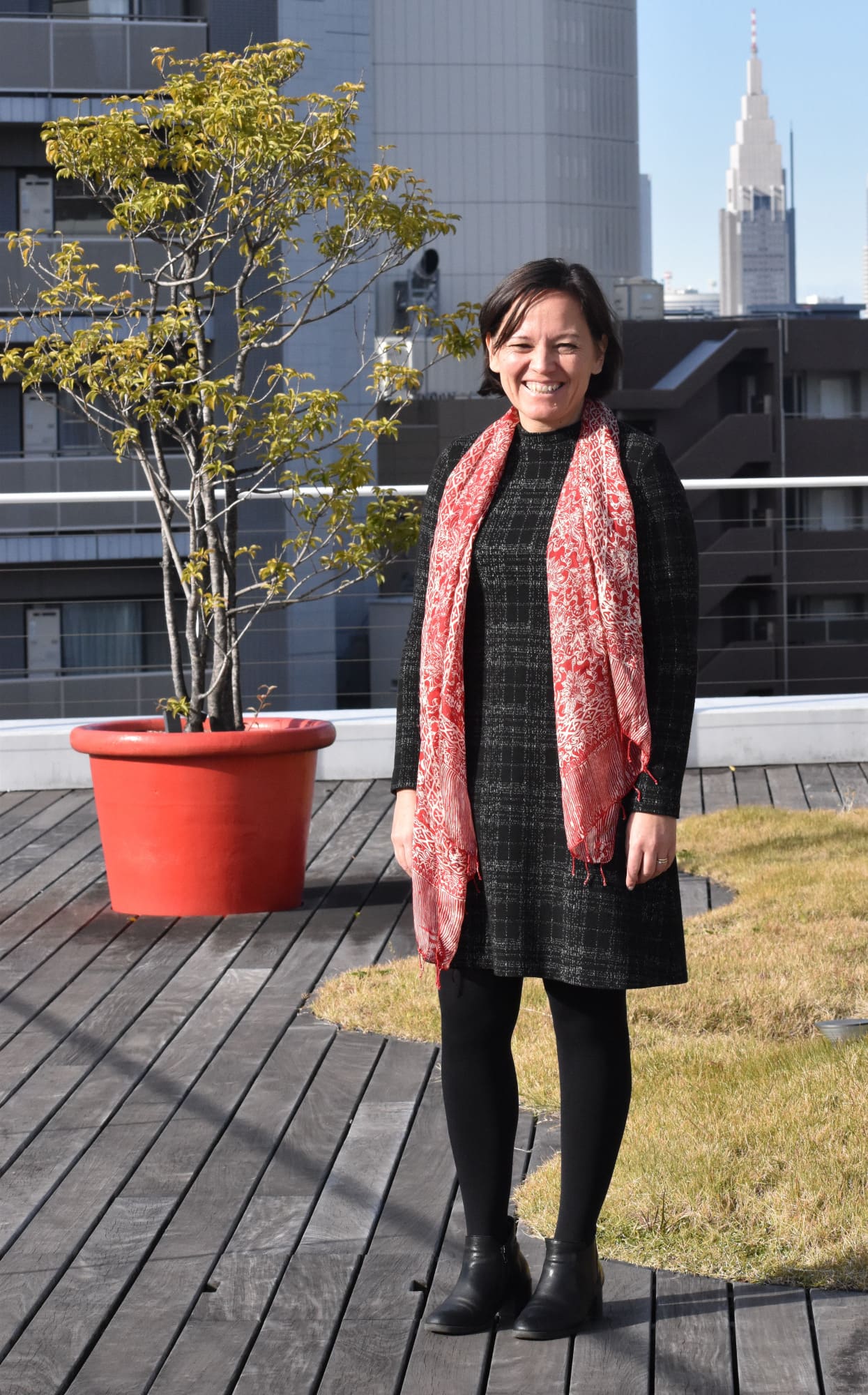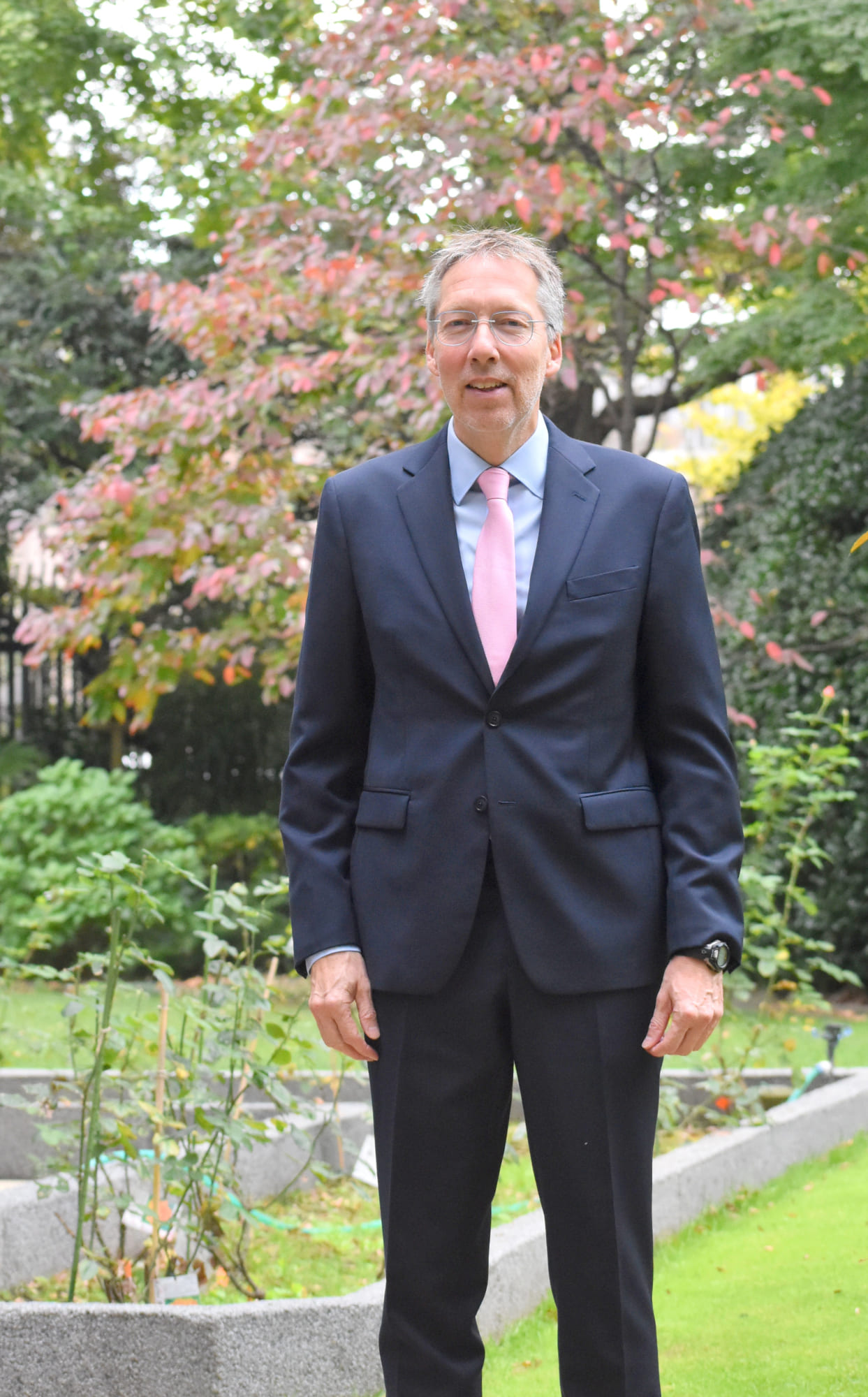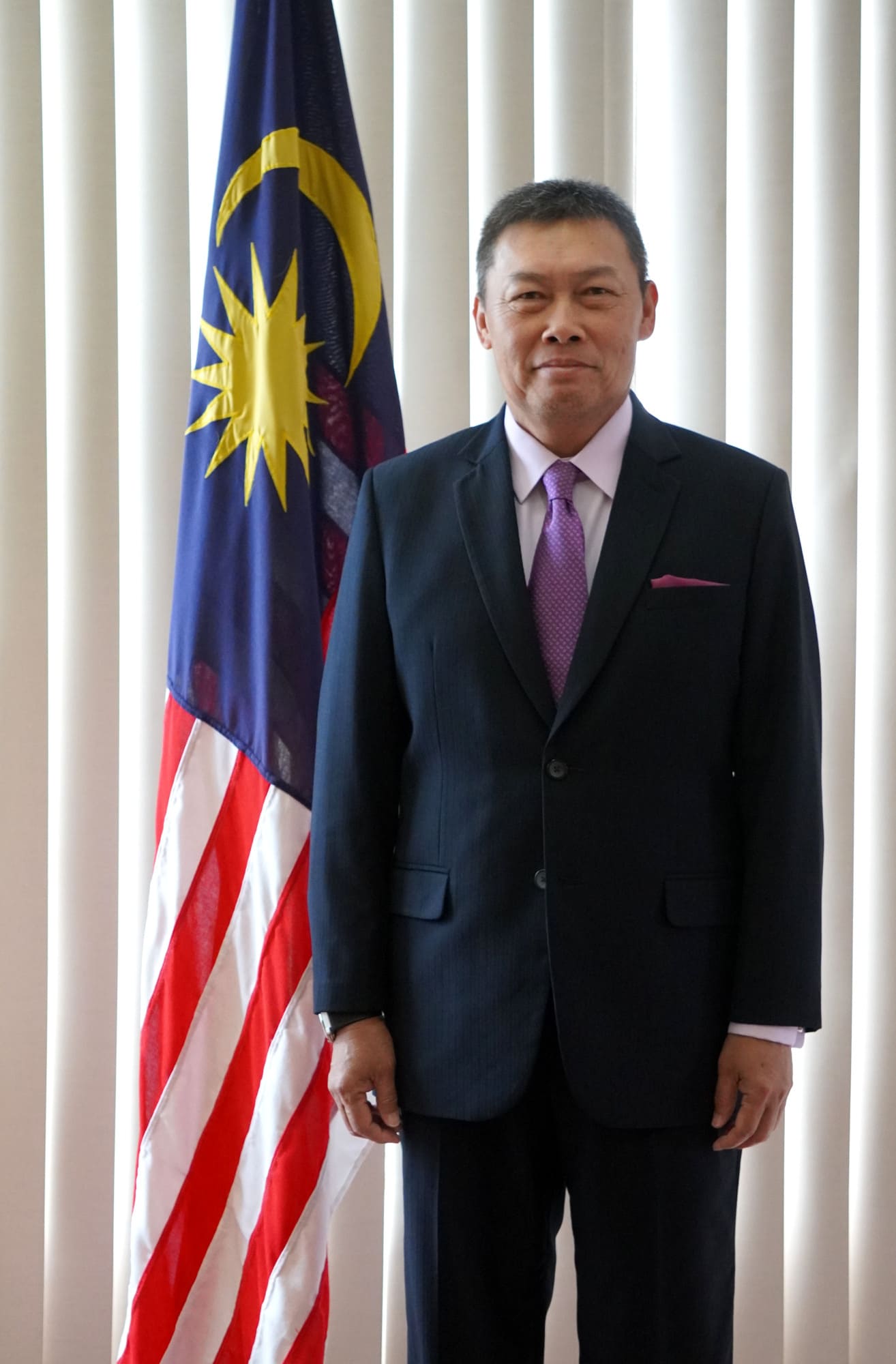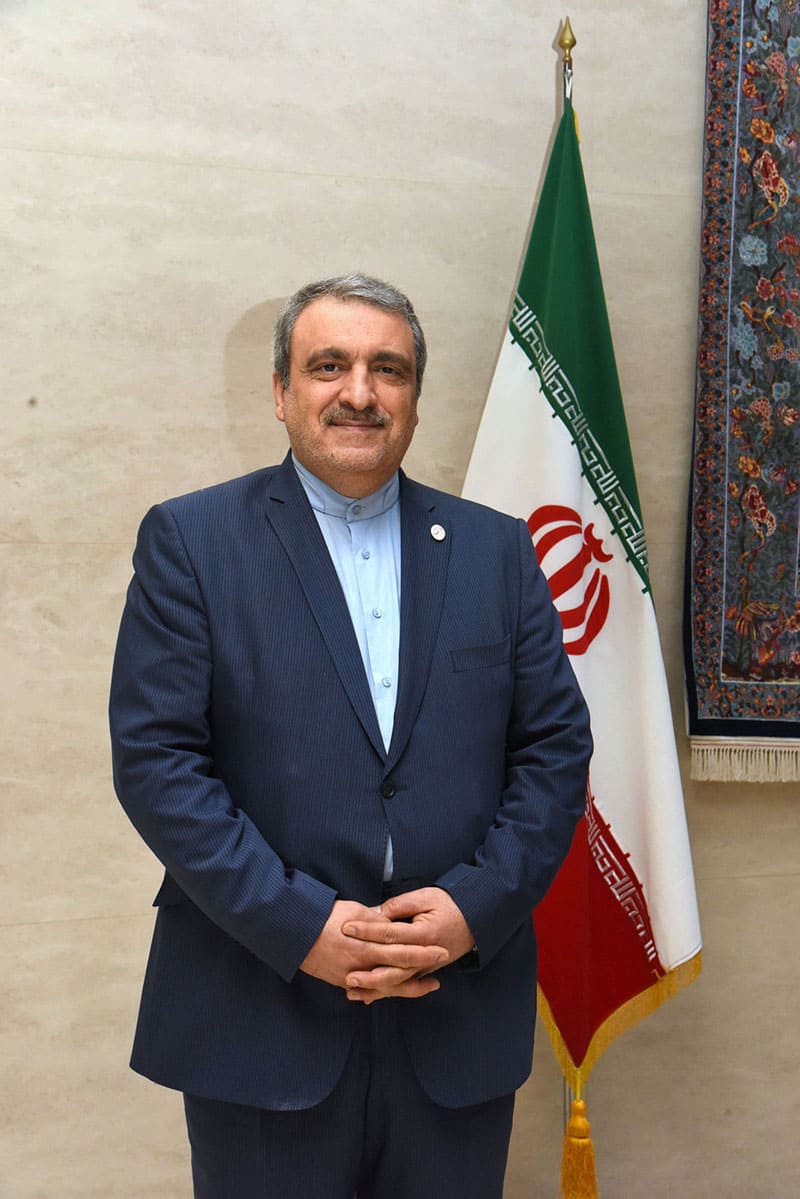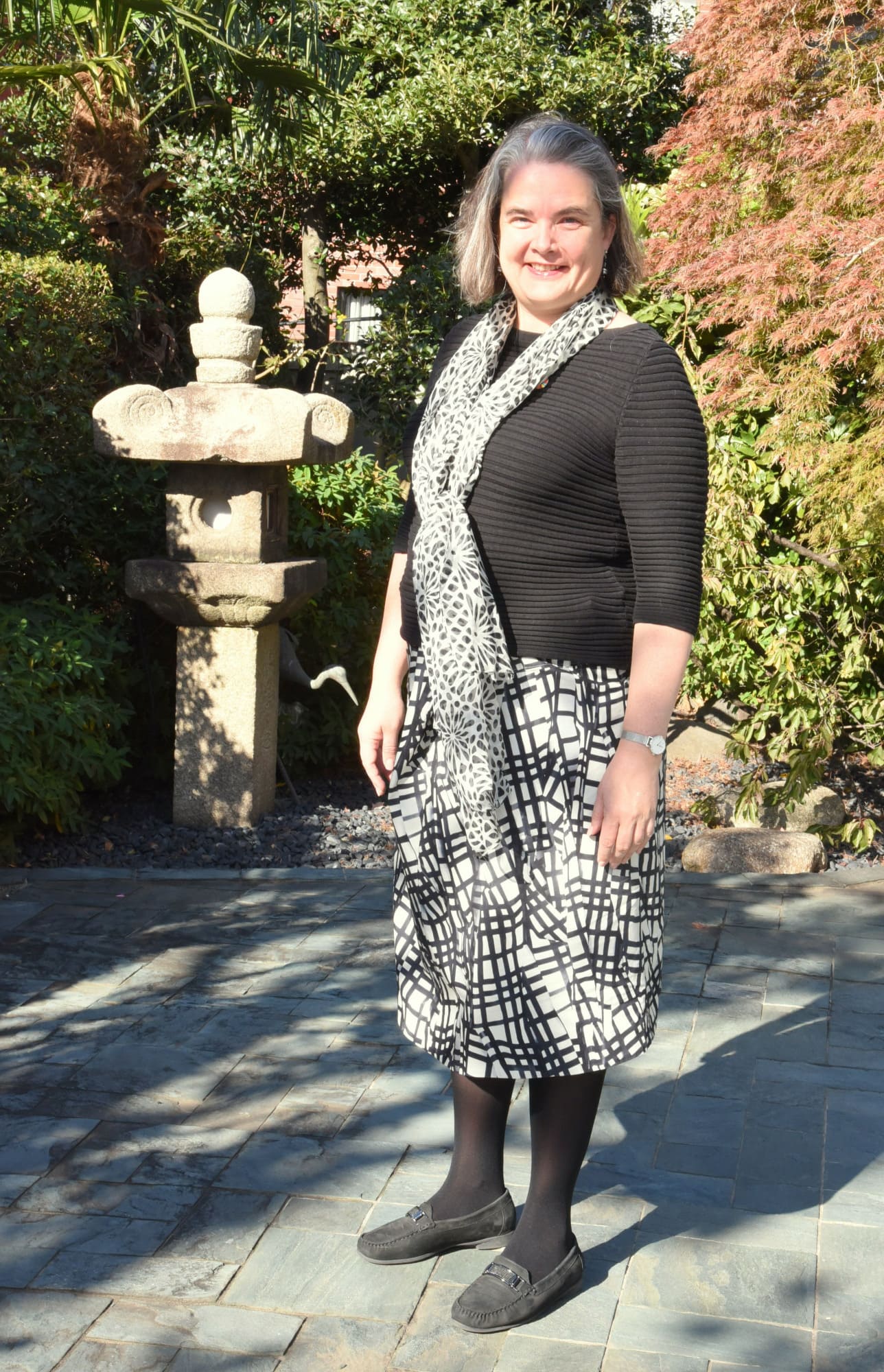
January 12, 2020
Steadfast commitment to hard work, cultural roots
Norway’s Inga Nyhamar on almost 30 years of diverse diplomatic work
BY JANE KITAGAWA
CONTRIBUTING WRITER
- Name: Inga Nyhamar
- Title: Ambassador of Norway
- URL: http://www.norway.no/japan
- DoB: July 7, 1964
- Hometown: Trondheim, Norway
- Years in Japan: 5 (cumulative)
Trondheim native, who grew up with swathes of forest on her university-town doorstep, itches to escape “civilization” and reconnect with the great outdoors.
“What many people from Norway miss, when they come to (Tokyo), is easy access to the wild,” Nyhamar told The Japan Times. “One place that I find quite fascinating is the Institute for Nature Study down in Meguro, which is simply a plot of land that they have let go wild — I think it is a brilliant idea — in the middle of a city. It’s a place we sometimes go when the cityscapes of Tokyo become a bit too much for us Norwegians and we need to see something in its natural state,” she said with a laugh.
“It’s important for ambassadors to not forget where they come from,” she added. “They shouldn’t go native where they’re placed abroad, nor should they disappear into a diplomatic bubble. To be well acquainted with daily life in the country that they’re representing, that’s important.”
Previously stationed in Japan as the embassy’s deputy chief of mission from 2004 to 2008, Nyhamar is well acquainted with Tokyo. She sees some changes — “My husband noticed Japanese fathers are carrying their children more; the way of dressing and behaving is perhaps a little bit more relaxed” — but does not believe that society has changed much overall.
According to Nyhamar, Norwegian visitors often remark that the gender roles of Japan seem old-fashioned, and she is often asked by Japanese what she thinks needs to be done. But she does not want to give instructions to Japanese women. “How you make things happen, and what you want to make happen, has to be up to the people living there. I strongly believe that (Japan) has to work on the basis of its own society and culture, as experienced by the Japanese themselves.”
Timing — and hard work — have seen Nyhamar transition through different diplomatic roles and foreign ministry postings over the last 28-odd years. Long interested in countries other than her own, she initially thought that her curiosity about the world could be satiated through studying languages.
It was only after beginning French studies that the ambassador realized the study of languages in itself was not what she wanted to devote her professional life to. She instead majored in political science, completing her thesis on the international negotiations on the ozone layer. Nyhamar applied to join the Ministry of Foreign Affairs in 1991 and was accepted.
It was the fall of the Iron Curtain and the end of the Cold War at the end of her student years, Nyhamar explained, that “opened my eyes to the possibility of politics and how interesting it is.”
“(The fall of the Iron Curtain) was an enormous event, particularly in Europe. I suddenly realized that all these structures and states, these apparatuses that we had known, studied and observed over so many years … that all these things that people have created, they can actually be changed,” she said.
Working in Prague after graduation, Nyhamar became fully immersed in embassy life doing practically anything she was asked, from “reporting on the Czech republic’s relationship to NATO to making passports.”
A subsequent posting in Washington D.C. saw her draw upon her studies and learn firsthand about American political relations.
It was during her first assignment in Japan, however, where Nyhamar recalls a particular career achievement.
The devastating Indian Ocean earthquake and tsunami of 2004 that affected vacationing Norwegians in Thailand saw Nyhamar and her cohorts helping to build “a whole new crisis management apparatus” from scratch. Developing crisis management strategies and establishing the role Norwegian foreign ministries around the world would play in the event of a major natural disaster had become a whole new field of work.
In addition to her regular duties as head of the section for disarmament and nonproliferation, Nyhamar acted as chief of the crisis management team for roughly four years. That preparation was later put into practice when the Great East Japan Earthquake struck in 2011 — “We handled a lot of processes,” the ambassador recalled.
No less significant were her efforts as part of a team to prepare a sizable conference held in 2013 in Oslo on humanitarian effects of nuclear weapons. The conference looked at the issue from a humanitarian, not geopolitical, perspective, which Nyhamar describes as “very relevant in the Japanese context.”
Later as the foreign ministry’s director, Section for East Asia and Oceania, Nyhamar was tasked with developing Norway’s China policy. At the time of her appointment, political relations had only been normalized for about six months, following a six-year hiatus.
Nyhamar was keen to stress that developing such a policy was challenging and involved much teamwork as opposed to singular efforts.
“I see my job and my role to make things happen. I’m not a politician. I have never been or ever wanted to be a politician. I’m a civil servant, understanding the world around me and making sure that we can promote knowledge and Norwegian policy the best way possible,” she said.
Relations with Japan are positive, Nyhamar noted. Exchange between universities and tech institutes, research about the Arctic, a joint commitment to addressing climate change, support for touring musicians, translations of Norwegian literature into Japanese and ensuring the sustainability of the ocean economy are other areas where cooperation has been effective. That said, there was always room for improvement.
“We think this relationship would work even better if we managed to negotiate an economic partnership agreement (EPA),” Nyhamar said. Norway is not a European Union member, but is part of the European common market through the European Economic Area agreement from 1994. “I hope (that in 2020) we can further promote the issue of commencing negotiations for an EPA between Norway and Japan.”
Career includes health, security roles
Inga Nyhamar hails from Trondheim, Norway’s third-largest city, and studied political science at the University of Oslo. Since joining the Norwegian Ministry of Foreign Affairs in 1991, she has held various positions both domestically and abroad, including postings at Norwegian embassies in Prague, Washington D.C., Tokyo and Paris. Norway’s Ministry of Foreign Affairs has also afforded her roles in security policy and North America; advising on global health issues for the ministry’s United Nations department; and significantly, saw her employed as director in charge of disarmament and nonproliferation affairs in the Department for Security Policy and the High North. Prior to her current assignment in Japan, Nyhamar was appointed director, Section for East Asia and Oceania, in 2017. Fluent in Norwegian, English and French, her hobbies include cultural history and languages, and being outdoors.

